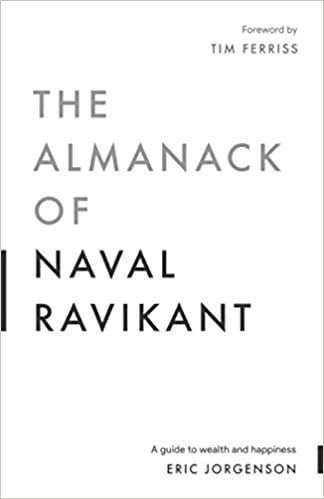This post is part of the 📖 The Almanack of Naval Ravikant series.
Today, I am reading Wealth: How to get rich without getting lucky chapter from the book The Almanack of Naval Ravikant: A Guide to Wealth and Happiness written by Author, Jack Butcher.
Getting rich is not just about luck; happiness is not just a trait we are born with. These aspirations may seem out of reach, but building wealth and being happy are skills we can learn.
So what are these skills, and how do we learn them? What are the principles that should guide our efforts? What does progress really look like?
The Book The Almanack of Naval Ravikant: A Guide to Wealth and Happiness is a collection of Naval’s wisdom and experience from the last ten years, shared as a curation of his most insightful interviews and poignant reflections.
Yesterday, I read Find and Build Specific Knowledge section from the Wealth: How to get rich without getting lucky.
Part I
Wealth: How to get rich without getting lucky
Play Long-Term Games with Long-Term People
Compound interest is a compelling concept.
Compounding in business relationships is very important. Look at some of society’s top roles, like why someone is a CEO of a public company or managing billions of dollars.
It’s because people trust them. They are trusted because the relationships they’ve built and the work they’ve done has compounded.
Intentions don't matter. Actions do. That's why being ethical is hard.
99% of the effort is wasted when it comes to goal-oriented life, only about 1 per cent of the efforts you made paid off.
I’m not saying don’t do the 99 per cent, because it’s very hard to identify what the 1 per cent is.
What I’m saying is: when you find the 1 per cent of your discipline which will not be wasted, which you’ll be able to invest in for the rest of your life and has meaning to you—go all-in and forget about the rest.
Key Takeaways
-
Compound interest is very important. When you find the right thing to do when you find the right people to work with, invest deeply. Sticking with it for decades is really how you make the big returns in your relationships and your money.
-
When you’re studying something, like a geography or history class, and you realize you will never use the information, drop the class. It’s a waste of time. It’s a waste of your brain energy.
Summary
- 99% of the effort is wasted. When it comes to goal-oriented life, only about 1 per cent of the efforts, you made paid off. Find that 1 per cent of your discipline, invest deeply, go in for the rest of your life, stick with it for decades and gain substantial compounding benefits.
That’s it for today. Tomorrow, we will read the final section Take on Accountability.
Author(s): Eric Jorgenson
Part 4 of 33 in the 📖 The Almanack of Naval Ravikant book series.
Series Start | The Almanack of Naval Ravikant: A Guide to Wealth and Happiness - Day 3 | The Almanack of Naval Ravikant: A Guide to Wealth and Happiness - Day 5
